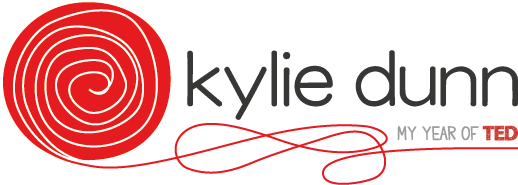30 Days of Preconceptions - 10 Years On
This activity, 30 days of Preconceptions, marks a shift in My Year of TED - a shift I've not really thought of before. I doubt any of you realise, but this is a fortnight late. I started to beat myself up about that delay at the end of April, but around this time 10 years ago I was getting worn out by the project. On completion of this activity, I decided to put off starting my 13th one for a couple of weeks, to get a brief break. So, it's probably fitting this is a little delayed.
This activity is based on three TED Talks, but really it is based on Chimamanda Ngozi Adichie's amazing talk The danger of a single story. You can read all about the activity outline and get links to the other talks in the original outline post - and I do encourage you to listen to Bill Strickland's talk too, especially if you work in the community sector.
How this evolved
I've learned a lot more about our brain and the vast array of cognitive biases we operate with since doing this whole project a decade ago. So, this is an area of great interest for me - to improve my own understanding of myself and others. Then there's also being on the receiving end of a lot of unconscious bias, as many people have.
I've often thought of making a t-shirt with the statement "Go on, underestimate me - that'll be fun!"
I've written a number of training programs for organisations where I try to get in the idea of cognitive biases, to improve awareness. I'm not talking about gender/age/race bias here, although we do include them. Rather, things like halo bias, confirmation bias, confidence bias and sunk cost (one of my favourites). Our brain has so many shortcuts and if we aren't aware they can negatively impact on our decision making and outcomes of our actions.
But there's another thing
A few years ago, I saw a post that was something like: I realised my initial reaction to someone didn't make me a bad person. That was simply how my brain was conditioned to think when I was younger. That the second thought I had was really who I am now.
This changed a lot for me because I was raised being judgemental of others - my first thought is usually critical. Which led me to believe I was a horrible person. And all the kindness and empathy I felt I showed people wasn't who I was, deep down. This simple post helped me see I had it the wrong way around! I was truly a kind and empathetic person, my considered response usually held those qualities. But my fast brain had developed with strong critical pathways, so that was usually the default split second thought process.
Understanding that simple truth has improved how I think of myself. It's also helped me retrain some parts of my fast brain processes.
Most importantly, 30 days of preconceptions and what I've learned since this activity have ensured I always (well nearly) consider the other stories at play. The other things that might also be true, and the things that really never were.


